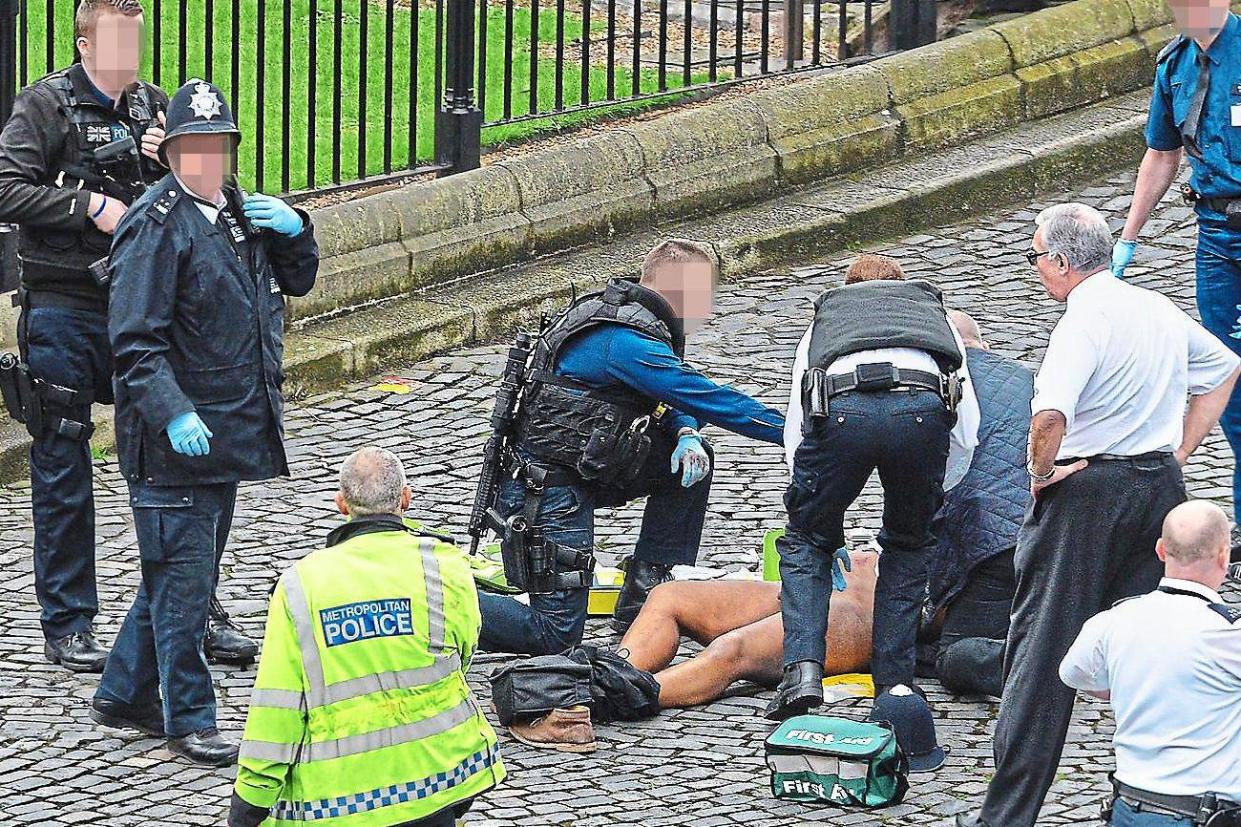We fought to save Westminster killer even though our dead colleague lay yards away, says gun officer

A member of the Met’s elite Specialist Firearms Command unit has spoken for the first time about how they battled to save the Westminster terrorist who murdered a fellow officer.
Sergeant Will Hitch and his team were on Westminster Bridge less than a minute after Khalid Masood ploughed a car into pedestrians and stabbed to death Pc Keith Palmer. Five people died and more than 50 were injured in the attack in March last year.
Sgt Hitch said he was “proud of the discipline” it took for CO19 officers to battle to save Masood after he was shot by a police protection officer. He said: “On Westminster Bridge we fought to save Khalid Masood, despite the fact he had just killed our colleague who was lying just metres away.
“He had a right to life, in spite of his actions, and we had the slightly surreal obligation to try and save him. In this country our job is to put suspects in front of a judge and jury. We’ll endeavour to do that in spite of emotions, provocations, instincts. I’m very proud of that discipline.”

Masood died of a gunshot wound to the chest. But Sgt Hitch, speaking at an SO19 firearms presentation at the Idea Store in Whitechapel, criticised media reports suggesting the Met has ever had a “shoot to kill” policy.
“There is no such thing,” he said. “Your police service does not execute people. We shoot to stop a threat, and the best way to do that is to aim for the ‘big bit’, the torso. This movie-style idea that you can shoot someone in the hand from 20 metres away, in a high pressure situation, is a fallacy. If we missed then we risk hitting another person. But as soon as someone has been shot, and the threat is removed, we will work hard to save their life.”
After terror attacks last year, a Police Federation of England and Wales survey found that more than a third of officers supported the idea of being armed, while 55 per cent said they would be prepared to carry a gun if asked.
But Sgt Hitch, who has been a police officer for 10 years, said having a gun “does not solve everything”.
“People have speculated that if Keith Palmer were armed he would still be alive. Would he have had time to use his gun? We will never know the answer to that question.”
In the past three years there has been a significant rise in gun crime in London, with gangs accounting for nearly half of offences where a gun is fired. Last year four people were shot dead by police in London — three terrorists were killed by City of London officers and Masood was shot by a Met officer. In 2016 no one was shot dead by a police officer in London.
Despite the rise in gun crime Sgt Hitch added that he would not want to see the UK have US-style police forces. “We have enviable gun laws in this country,” he said.
“The reason we shoot so few people is we don’t recruit ‘Rambo’ characters. We recruit people who are good at talking to people. I do wonder elsewhere in the world how much training they get at just defusing situations. We practise dealing with someone having a mental health episode, and learning to talk to those people effectively.”
Sgt Hitch, who is based at the Special Firearms Command in Tower Hamlets, acknowledged that the Met needs to do more to engage the public, particularly young people.
Officers from the Specialist Firearms Command have launched Op Makepeace and spoke to more than 10,000 London pupils last year about their work. “It’s important that people know we do everything in our power to avoid shooting someone,” said Sgt Hitch. “It’s always a last resort but, crucially, if we have to, we will.”

 Yahoo News
Yahoo News 
